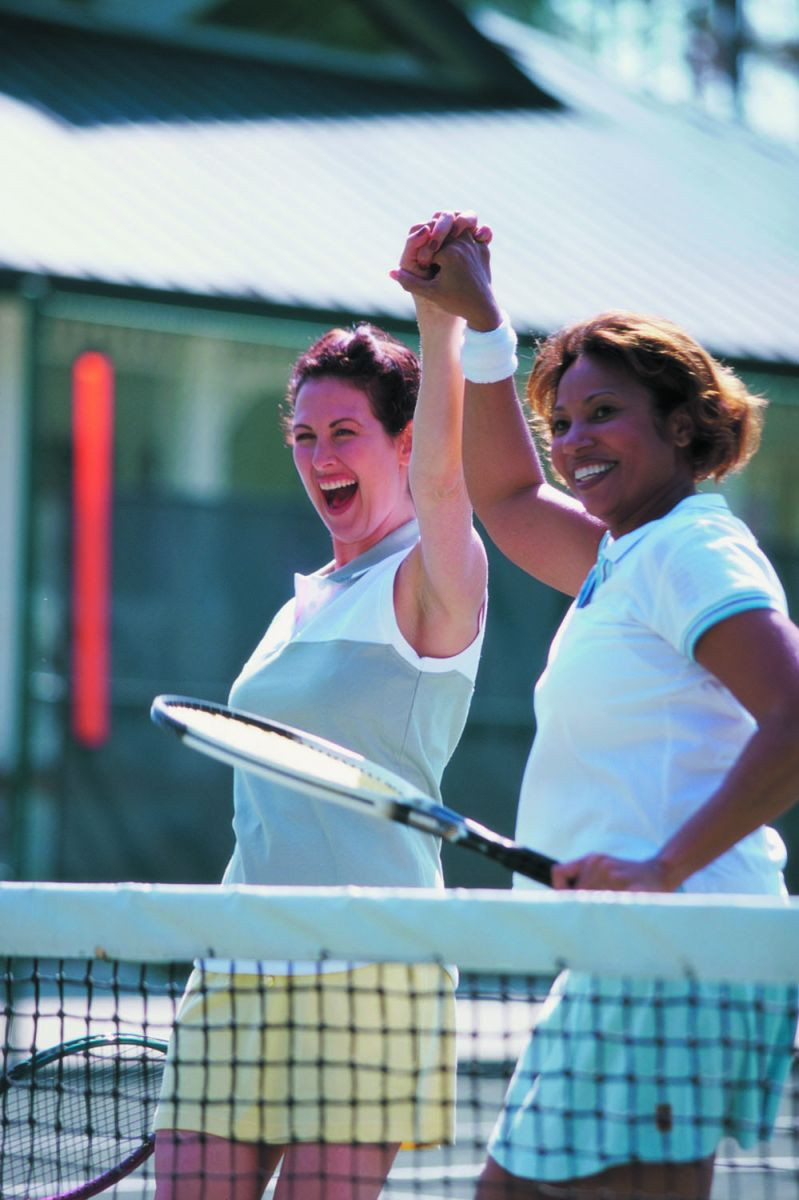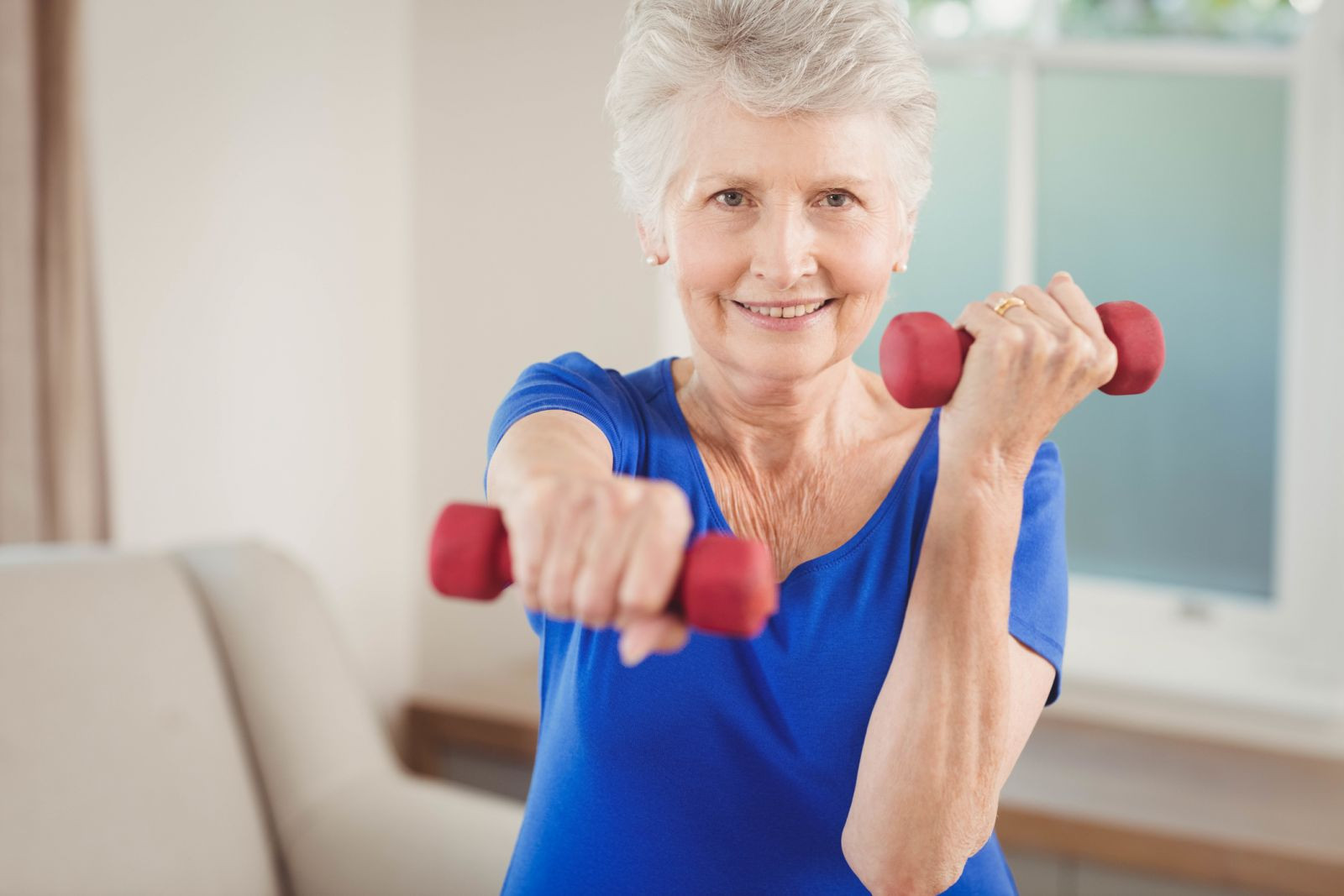
How does prostate cancer treatment affect mental health?

5 timeless habits for better health

What are the symptoms of prostate cancer?

Is your breakfast cereal healthy?

When pain signals an emergency: Symptoms you should never ignore

Does exercise give you energy?

Acupuncture for pain relief: How it works and what to expect

How to avoid jet lag: Tips for staying alert when you travel

Biofeedback therapy: How it works and how it can help relieve pain

Best vitamins and minerals for energy
Exercise & Fitness Archive
Articles
Medicare now covers exercise training for blocked leg arteries
Research we're watching
About 8.5 million Americans have peripheral artery disease, or PAD, in which fatty plaque clogs arteries outside of the heart, most commonly in the legs. The hallmark symptom is calf or thigh pain while walking that goes away when you rest.
The safest, most effective treatment for PAD is supervised exercise training, in which you're monitored while walking on a treadmill. Few people participate, however, partly because of the expense of the regimen. It involves up to 36 sessions of 30 to 60 minutes each over a period of three months.
Take a stand against sitting
Studies have linked long periods of sitting with an increase in heart disease and early death.
Image: © monkeybusinessimages/Thinkstock
Odds are you are sitting while you read this. In fact, more than half of an average person's waking hours are spent sitting, according to a study in the Jan. 19, 2015, Annals of Internal Medicine.
All that sitting can cause great damage to your health. "The health risks tied to sitting may not be completely related to the act of sitting itself, but rather that sitting keeps you from doing healthier activity," says Dr. I-Min Lee of Harvard's T.H. Chan School of Public Health.
Two types of exercise may be needed to preserve muscle mass during weight loss
Research we're watching
While obesity presents a number of health risks for older adults, weight loss is often accompanied by a reduction in muscle tissue and loss of strength. A team led by researchers at Baylor College of Medicine set out to determine whether more exercise or specific types of exercise would help preserve muscle during weight loss.
The researchers randomly assigned 103 obese women and 57 obese men over age 65 to one of four groups. Three groups participated in a reduced-calorie diet plus one of three exercise programs — aerobic training, resistance training, or combined aerobic and resistance training — while the fourth, a control group, only received information on healthful eating.
Exercise today, look better tomorrow (really)
A small study supports the idea that exercising improves body image, whether or not the activity leads to any visible change in appearance. This suggests that additional research examining different types of exercise, and the long-term psychological effects of physical activity would be valuable.
Tennis, anyone?
When it comes to heart health, there's a lot to love about racket sports.
If you haven't lobbed a tennis ball over a net since high school, you might want to pick up a racket again. A recent study suggests that people who play racket sports regularly may slash their odds of dying from a heart attack or stroke.
Tennis, which ranks among the world's most popular sports, provides an excellent full-body workout, plus a few other less obvious benefits. And lower-impact racket sports, such as badminton or table tennis, may be good choices for people who have certain health conditions or who are older (see "Ping-Pong, perhaps?").
No place like home for knee replacement rehab
In the journals
A study published online March 14, 2017, by The Journal of the American Medical Association suggests that when it comes to speed of recovery after a total knee replacement, a home-based rehabilitation program is as good as rehab that starts with a stay in the hospital.
Researchers randomly assigned people with osteoarthritis undergoing total knee replacement into two groups for 10 weeks of therapy. Those in one group received 10 days of hospital inpatient rehabilitation followed by a clinician-monitored program that they attended two to three times a week for eight weeks. Those in the other group skipped the hospital rehab and went straight into the clinician-monitored program but then progressed to at-home exercises.
Getting a start on growing stronger
Building strength and power is key to healthy aging, both physically and mentally. It may be easier than you think.
We probably don't need to remind you that your body changes with age. Age-related muscle loss begins at around age 35 and progresses slowly — at about 1% per year. But after about age 60, muscle loses mass more rapidly, so that adults who don't do regular strength training may lose 4 to 6 pounds of muscle per decade. Moreover, the lost muscle is usually replaced by fat.
Studies show that strength training not only can slow muscle loss, it can also help prevent or control conditions as varied as heart disease, diabetes, arthritis, and osteoporosis. And recent research indicates that it can also improve cognitive function, especially when added to aerobic exercise. As we age, strength training helps to preserve mobility and reduce the risk of falling. "What has been shown is that if you're looking at mobility problems, the most beneficial exercises that are those that focus on progressive training for strength and power," says Dr. Jonathan Bean, an associate professor of physical medicine and rehabilitation at Harvard Medical School.
Exercise and better thinking skills: More evidence for a possible link
News briefs
Image: © Horsche/Thinkstock
A review of research published online April 24, 2017, by the British Journal of Sports Medicine suggests that physical exercise may help improve thinking skills in adults ages 50 or older, regardless of their mental performance when they started exercising. Researchers combed through 39 randomized controlled trials that looked at this age group. Most of the studies involved people who did aerobic exercise (the kind that gets your heart and lungs pumping, like brisk walking), resistance training (the kind that works your muscles and bones, like weight lifting), or a combination of aerobics and resistance training. A handful of the studies involved people who did yoga or tai chi. In all of the studies, participants took tests that measured various aspects of thinking skills — such as attention, working memory, and the ability to plan, organize, and manage time. All exercise types but yoga appeared to have benefits for the brain. The authors say the exercise regimen with the biggest brain boost was a combination of both aerobic and resistance-type training, of at least moderate intensity, for at least 45 minutes per session on as many days of the week as possible. The takeaway? Start exercising, and incorporate resistance training into your weekly routine.
Are there any benefits to exercising on an empty stomach?
On call
Q. I have heard that exercising on an empty stomach burns more fat and at a faster rate. Is this true?
A. When the body is in a fasting state, several backup mechanisms ensure your muscles and brain get the necessary sugar for fuel. During exercise, after your body's sugar stores are exhausted, the body then taps into stored fat and turns that into sugar or turns protein from muscle into sugar. This has led to the hypothesis that exercising when the body is already "sugar starved" will lead to more rapid fat burning.
Wrist-worn activity trackers offer inconsistent heart rate data
Research we're watching
Earlier studies have shown that wrist-worn activity trackers can accurately record the number of steps a wearer takes. However, few studies have determined how well they monitor heart rate.
Researchers at the University of Wisconsin in Madison studied four wrist-worn activity trackers — Basis Peak, Fitbit Surge, Fitbit Charge, and Mio Fuse — to determine the accuracy of their heart rate monitoring in 40 healthy women and men ages 30 to 65. The researchers fitted each participant with four trackers—two on each wrist. Using the trackers as well as an ECG machine, the researchers measured the wearers' heart rates at one-minute intervals for 10 minutes while they were sitting. They then repeated the measurements while the participants walked on a treadmill for 10 minutes. When they compared the readings from the ECGs and the trackers, they found that all of the readings were more consistent when the participants were resting than when they exercised.

How does prostate cancer treatment affect mental health?

5 timeless habits for better health

What are the symptoms of prostate cancer?

Is your breakfast cereal healthy?

When pain signals an emergency: Symptoms you should never ignore

Does exercise give you energy?

Acupuncture for pain relief: How it works and what to expect

How to avoid jet lag: Tips for staying alert when you travel

Biofeedback therapy: How it works and how it can help relieve pain

Best vitamins and minerals for energy
Free Healthbeat Signup
Get the latest in health news delivered to your inbox!
Sign Up








